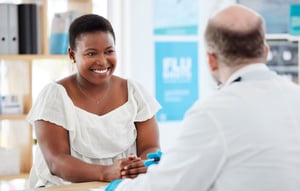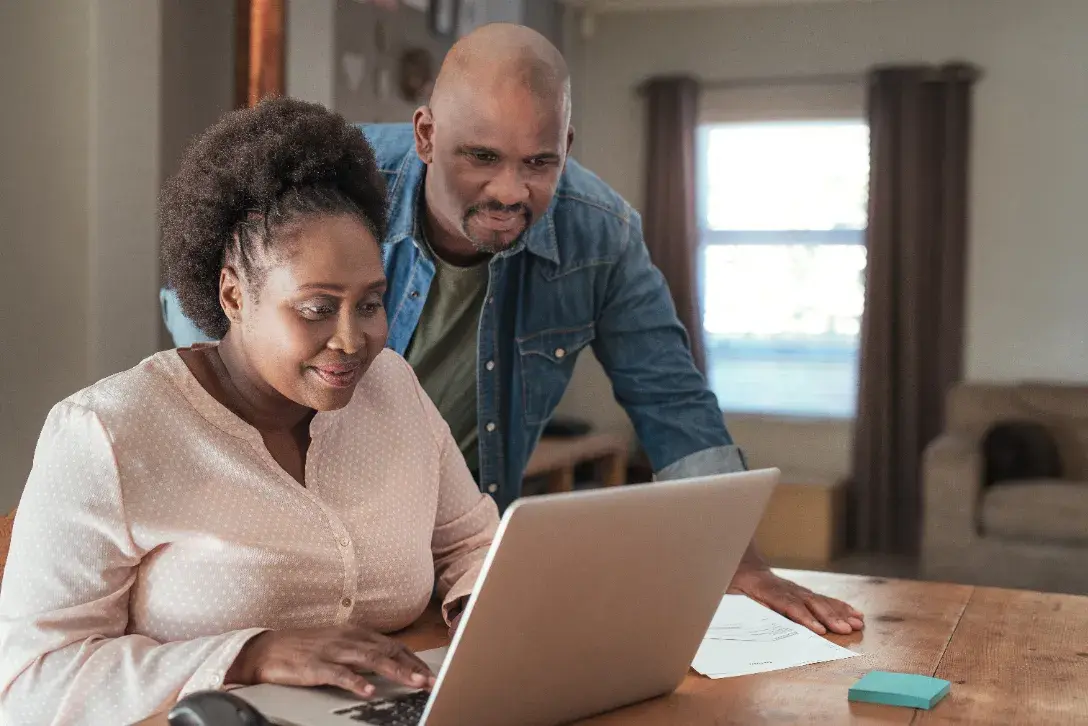Acclinate’s initiative NOWINCLUDED is helping to create the change necessary to overcome clinical research challenges. NOWINCLUDED is a health education and patient engagement community created by and for the Black/African American community. Ambassadors for NOWINCLUDED speak about clinical research in an open, honest way that’s accessible to community members.
By accessing clinical trial services such as NOWINCLUDED, pharmaceutical companies and researchers can tap into the support needed to rebuild trust and build more health equity in pharma.
The Importance of Affective Trust
Successfully rebuilding trust means focusing on what’s known as “affective trust” rather than “cognitive trust.” While cognitive trust is based on reason, affective trust is based on a genuine emotional connection. These emotional connections often make feelings of trust stronger.
Any diversity strategy and action plan for clinical researchers must be founded on this principle. It’s essential to engage directly with a community by showing respect and a willingness to work together to build affective trust.
This involves connecting with community members who are already respected and accepting their help to get the word out about patient resources and education. It also requires communicating in a way that’s clear, honest, and transparent. Partnering with community leaders who are willing to educate patients about clinical trial participation is one of the most impactful things researchers can do to build affective trust and promote patient engagement in the pharmaceutical industry.
NOWINCLUDED Ambassadors: From the Community and For the Community
The time, dedication, and resources needed to find Black community leaders willing to partner with clinical research organizations can be significant. Fortunately, NOWINCLUDED does this work already.
At its heart, NOWINCLUDED is a digital community where patients from communities of color can learn more about specific health conditions, empower informed health decisions and gain valuable support from within the Black community. It provides educational resources, community groups dedicated to specific health concerns, and information about clinical research opportunities.
In addition to their patient communities, NOWINCLUDED’s most powerful resources are its ambassadors, patients with various diagnoses who are willing to share stories of their healthcare journeys and information about their challenges and victories. Many of these ambassadors have participated in clinical research, and their voices are essential for helping patients from communities of color realize affective trust. NOWINLUDED ambassadors connect with patients 1:1, but they also share videos, conduct webinars, provide Q&As, and attend in- person events, where they meet with patients at healthcare and civic events.
Tamara Mobley is one such ambassador. Tamara was diagnosed with multiple myeloma 14 years ago. Now, she gives back to her community by sharing her treatment journey on NOWINCLUDED.
“I really wanted to provide hope, provide a space for people to see themselves,” Mobley says, explaining why she chose to become a NOWINCLUDED ambassador. So far, she has shared her experiences through videos, Q&As, and one-on-one conversations with fellow multiple myeloma patients.
By telling her story, Mobley helps people like her understand how to navigate this condition that disproportionately affects Black patients, including providing them with resource materials and education.
Growing Clinical Trial Enrollment with Authentic Relationships
Mobley’s ambassadorship is inspirational, but her experience also illustrates how powerful affective trust can be. “There really is something about shared experiences that lends to a level of trust,” she says. As a result of that trust, she has been able to share insider tips on living with multiple myeloma with a receptive audience — and one with a real need to see that the face of multiple myeloma could also look like theirs. Much of this information is related to the nuances of having multiple myeloma as a younger Black woman, a perspective that is too often missing from the multiple myeloma medical establishment, where often older and mainly white patients are represented in educational materials.
The trust Mobley cultivated by sharing these tips with NOWINCLUDED’s audience has resulted in real relationships. She tells the story of how she formed a friendship with another woman through NOWINCLUDED: “Someone saw my video on the NOWINCLUDED page and reached out to me directly to have a conversation.” This woman, now a friend, talks with Mobley regularly and they share information and hope about living with the disease.
“It's one thing to watch a video, but I think Acclinate actually connects the dots in real life,” Mobley adds. “It’s education at first, but then it turns into a relationship.”
Relationships like this give Mobley the opportunity to share information about clinical research in which she has participated — in a personal and intimate way. Mobley has participated in multiple clinical trials, and she considers those trials to be among the best treatment experiences she has received. Sharing that part of her story with others can help de-mystify the clinical research process.
“When you have someone that has actually walked in those shoes from beginning to end, I think it just puts a face to it,” Tamara says. “You know how they navigated it; you know how they came to make the decision to participate. I was able to let people know that, many times, you get a heightened level of care when you are on a trial.”
Through the work of ambassadors like Mobley, NOWINCLUDED and Acclinate are effectively working to break down clinical trial barriers in communities of color while actively empowering communities of color to take an informed approach to healthcare and lend their voices to patient advocacy.
Improving Your Diversity Strategy and Action Plan with Acclinate
Patient communities unite on NOWINCLUDED around genuine desires to share healthcare-related support.
“You want to do things to impact your community, and Acclinate makes it easy for me to do that because they already have a built-in audience, a platform,” Tamara shares. “I have a voice to empower and to help people be advocates for their own health. I'm so appreciative of the NOWINCLUDED community.”
It’s this kind of interconnected synergy that powers the work that Acclinate’s clinical trial services do to improve diversity in clinical research. In short, improving health equity in pharma begins long before clinical trials do. Improving diversity in clinical research must start with the establishment of trust that facilitates access to the populations traditionally missing from clinical trials.
Acclinate gives pharmaceutical companies access to communities of color, facilitates engagement around trials, and then analyzes the data generated to predict and plan where and when your next effort should happen to create the ongoing representation you need. To learn more, schedule a 1:1 meeting.









.webp)




